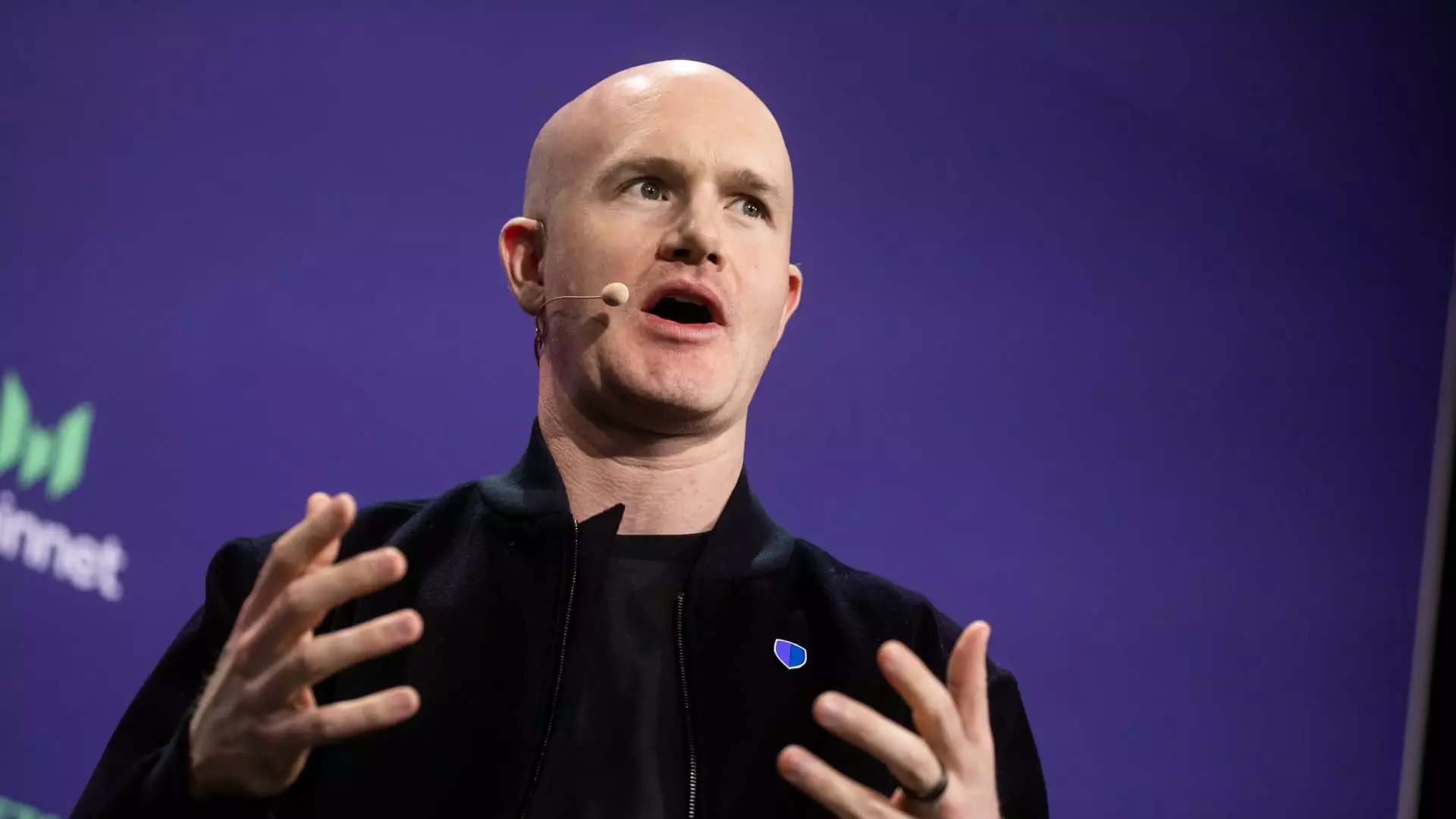In a world where the financial playing field is being reshaped by digital currencies, Coinbase’s CEO, Brian Armstrong, recently asserted that the crypto exchange aims to become a leader in the financial services sector within the upcoming years. While at first glance, this might seem like an ambitious yet positive growth trajectory in an evolving market, one must examine the implications of such a statement more critically. Armstrong’s vision to evolve beyond a mere cryptocurrency exchange into a comprehensive financial services app raises red flags, both in terms of regulatory oversight and competitive dynamics within the financial ecosystem.
Blurring Lines Between Innovation and Irresponsibility
Armstrong’s assertion that cryptocurrencies are “eating financial services” can hardly be seen as a mere observation; it is an exaltation of the notion that crypto innovations should completely overhaul existing financial paradigms. While innovation is crucial for progress, the potential for recklessness in trading and investment practices cannot be discounted. Innovation should not come at the cost of sound financial practices. The juxtaposition of stability in traditional finance against the inherent volatility of cryptocurrencies raises crucial questions: Should we blindly accept that crypto can supplant traditional systems simply because they are new and alluring?
A Proxy for Corporate Power
The vision behind Coinbase also hints at an unsettling trend where tech firms exert more control over financial services than traditional banks. With titans like BlackRock, Stripe, and PayPal entering the crypto space, it’s vital to reflect on who benefits most from these massive shifts. While the entrepreneurial spirit behind these advancements seems empowering, it also reveals a landscape dominated by a small number of corporations, leading to potential oligopolistic practices that could stifle competition. In the quest for dominance, will consumer interests fall by the wayside?
Regulatory Easing: A Cause for Concern
The recent lifting of regulatory blockades by the Office of the Comptroller of the Currency (OCC) — allowing U.S. banks to trade and hold crypto assets — is another dimension to Armstrong’s ethos. Politically motivated efforts, particularly under the Trump administration, seem to embolden crypto platforms but at what price? The rapid loosening of regulatory frameworks can often lead to insufficient oversight, making the market susceptible to fraud, volatility, and systemic risk. It’s troubling to consider that the eagerness of financial institutions to adopt crypto services is not matched by adequate regulatory infrastructure to ensure consumer protections.
The Stablecoin Dilemma
Coinbase’s burgeoning revenue from stablecoins and its ambition to make USDC the number one stablecoin sheds light on a deeper concern — the sustainability and ethical implications behind stablecoins. Armstrong’s views express a desire for monopoly in the stablecoin market, with the implication that numerous banks should align themselves with USDC for operational synergy. This obsession with network effects could inadvertently limit consumer choice and tilt the playing field even further into the hands of a select few entities that dictate terms. Does this not echo the ethos of traditional financial systems, where the consumer often becomes an afterthought in the pursuit of profit?
Financial Services for the Many or the Few?
Armstrong’s vision includes reaching various customer segments from retail to institutional investors, but one must ponder how inclusive this new financial ecosystem is likely to be. With technologies such as cryptocurrencies and blockchain often touted as democratizing forces, there are evident risks that financial service advancements could ultimately favor tech-savvy individuals and corporations with research and resources, thus alienating the less informed or economically disadvantaged.
The Future: A Competitive Battleground
Armstrong envisions a time when banks will integrate crypto services as an undeniable aspect of modern finance. While there’s an undeniable allure to merging traditional finance with the innovation of crypto, it’s critical to approach this integration thoughtfully. If Coinbase’s aspirations are fully realized, we could face a future where financial platforms prioritize speculation over stability.
By celebrating a vision where digital currency monopolizes financial services, we risk losing sight of the imperative for equitable access, sound governance, and genuine consumer protection. The ambition of Coinbase, while potentially transformative, evokes concern about the true cost of this transformation in our financial landscape.

